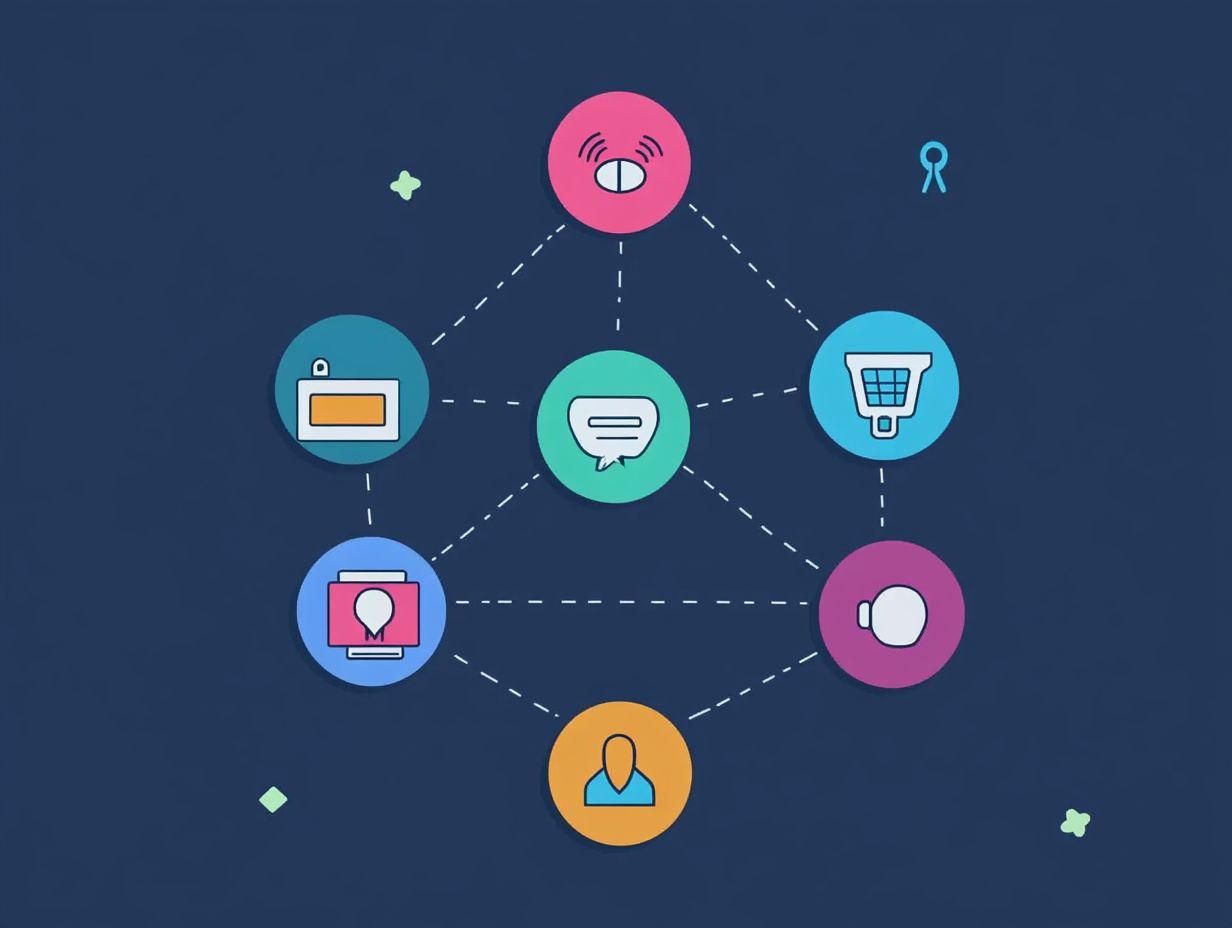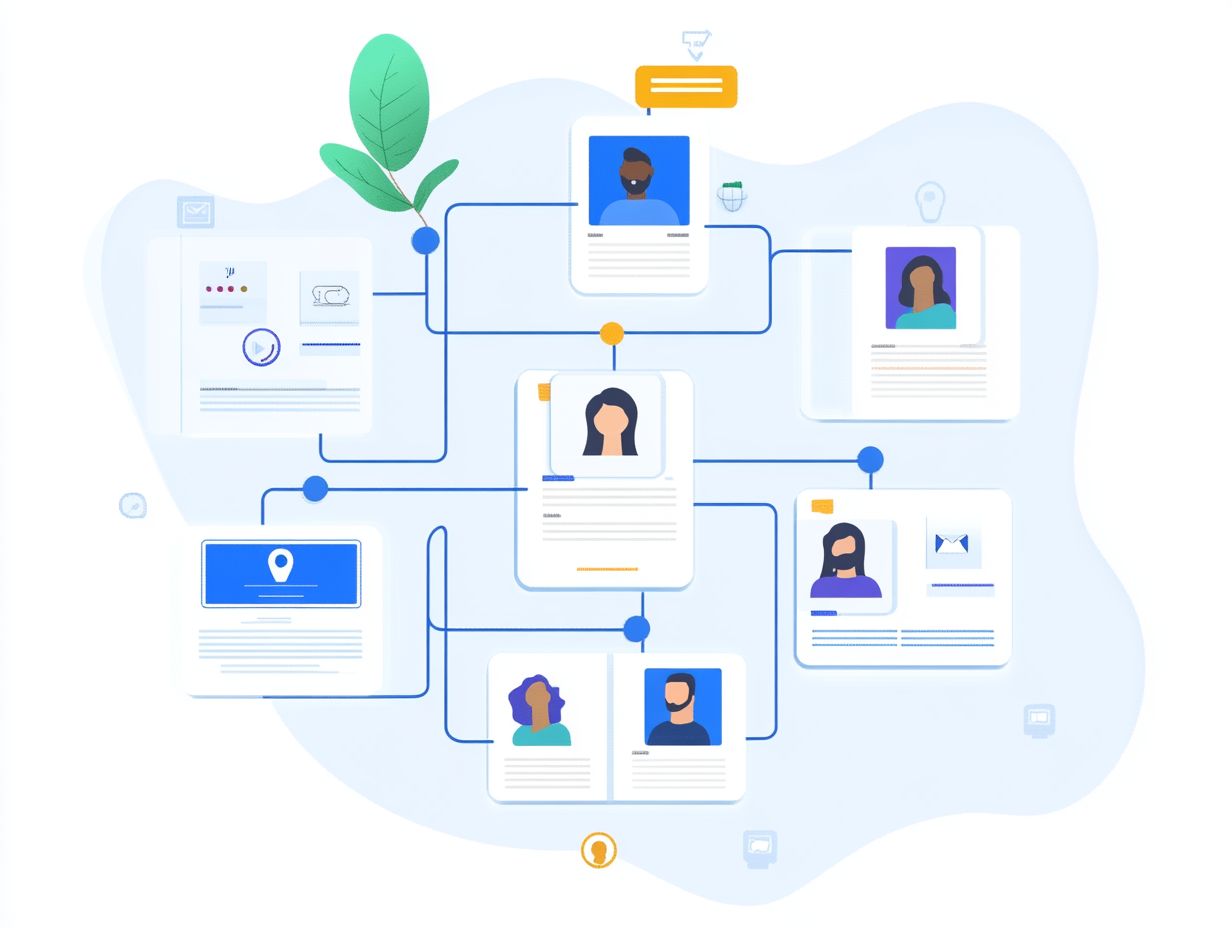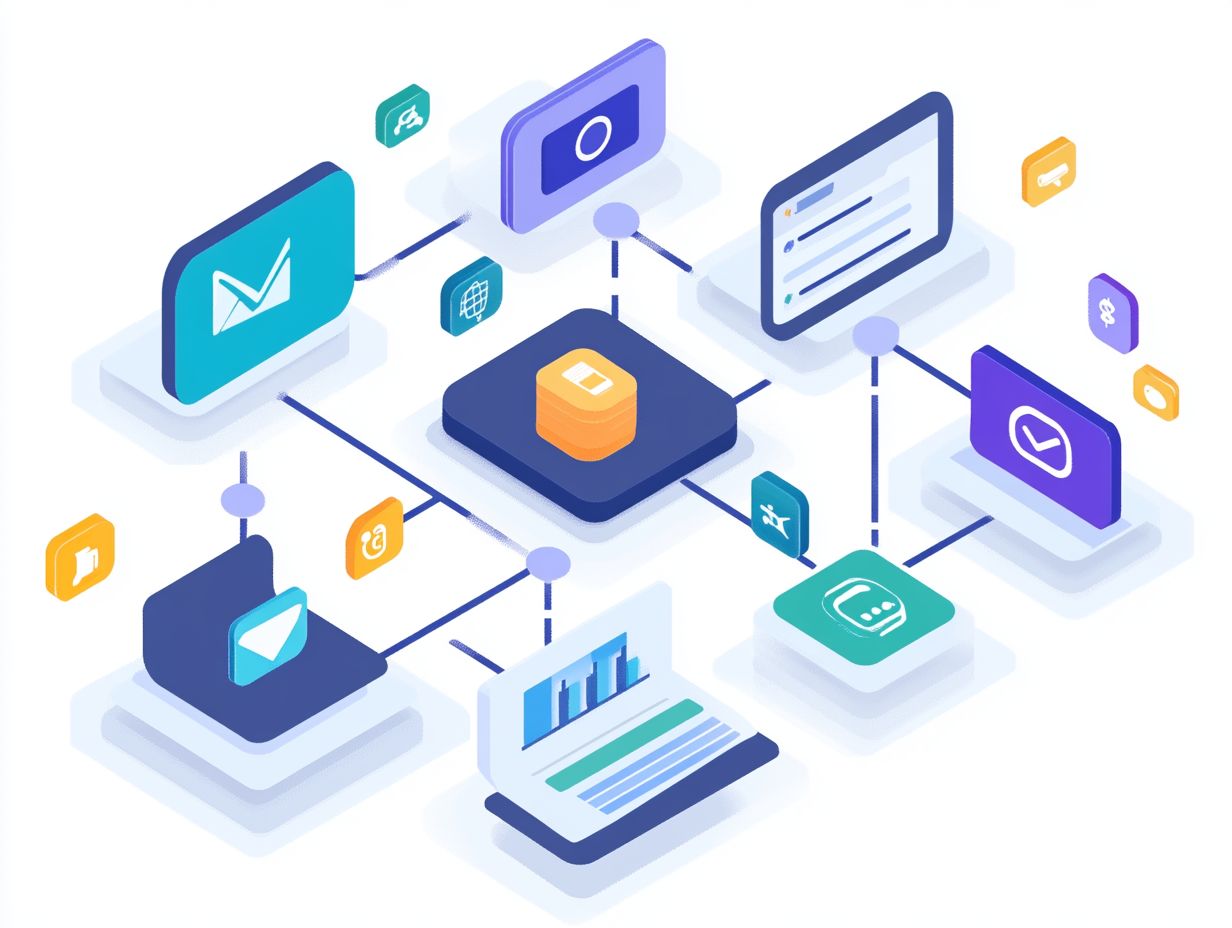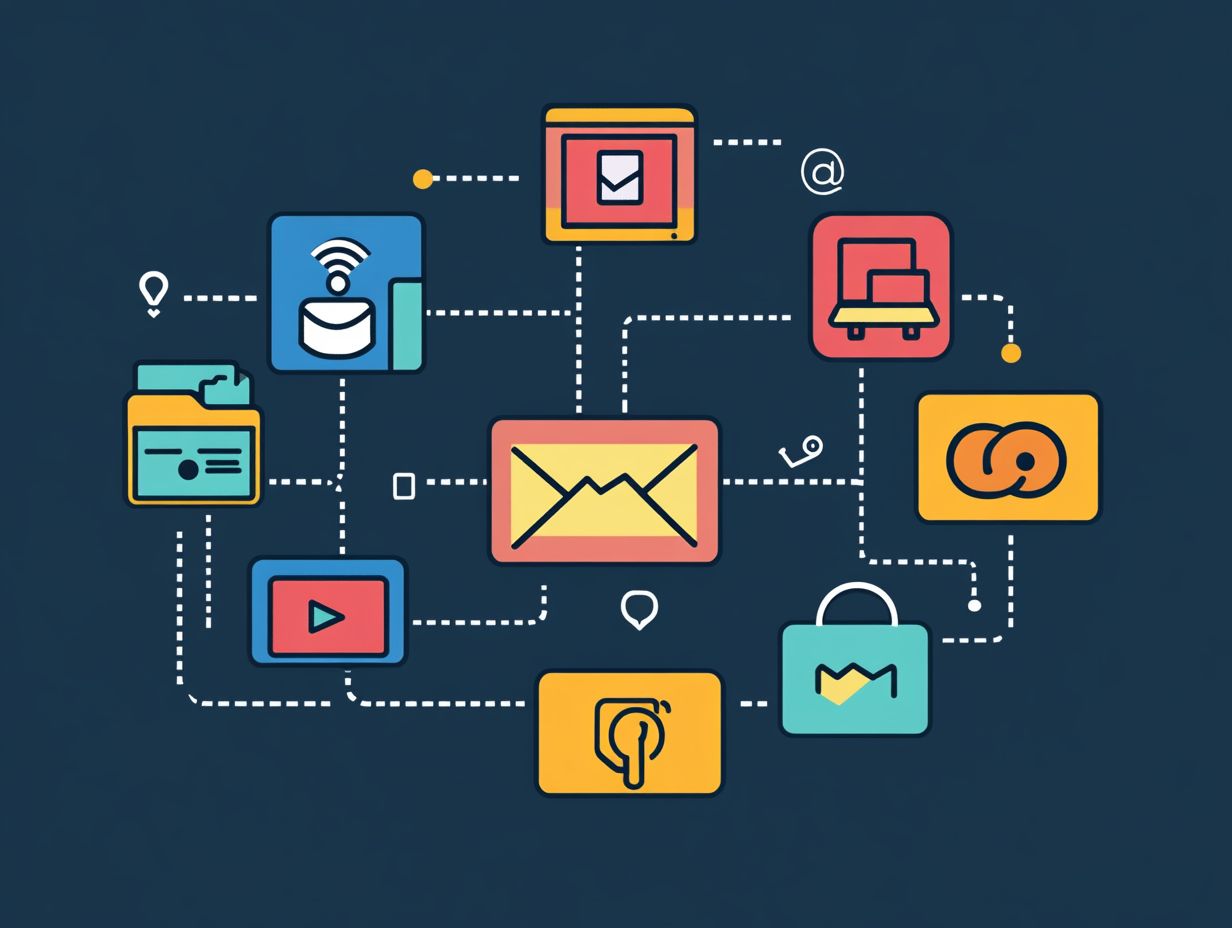“Top 5 CRM Support Channels for Users”
In today’s fast-paced business environment, effective customer support has become more crucial than ever before. With many options at your disposal, figuring out which Customer Relationship Management (CRM) support option is best for you can feel overwhelming.
Get ready to explore the top five support channels that can transform your customer service experience phone, email, live chat, self-service, and social media each presenting its own unique advantages and challenges.
You ll also find valuable insights on selecting the right channel, best practices for implementation, and emerging trends that are shaping the future of customer support. Dive in to discover how you can enhance your customer experience and maintain a competitive edge in the market!
Contents
- Key Takeaways:
- 1. Phone Support
- 2. Email Support
- 3. Live Chat Support
- 4. Self-Service Support
- 5. Social Media Support
- Which CRM Support Channel Is Best for Your Business?
- What Are the Pros and Cons of Each Support Channel?
- How Can a Business Determine Which Support Channel to Use?
- What Are the Best Practices for Utilizing CRM Support Channels?
- How Can a Business Ensure a Positive Customer Experience Through Support Channels?
- What Are the Upcoming Trends in CRM Support Channels?
- Frequently Asked Questions
Key Takeaways:

Phone support offers direct and personalized assistance, but may have longer wait times and be less convenient for customers. Email support allows for efficient communication and documentation, but response times may be slower and messages can get lost in the inbox. Live chat support provides real-time assistance and convenience, but may require additional resources and training for businesses.
1. Phone Support
Phone support stands as a vital pillar in your customer relationship management (CRM) strategy. It offers a direct and personal way to connect with your customers and resolve their issues.
This approach provides immediate feedback and fosters personalized interactions. It creates a clear pathway for tackling complex queries, making it a critical asset in your business’s support toolkit.
Leading CRM tools like HubSpot and Salesforce help manage customer relationships effectively. They seamlessly integrate phone support, allowing your representatives to access customer histories during calls for more informed conversations.
For instance, HubSpot s calling feature enables your sales teams to record calls, ensuring that crucial information is captured for future interactions. Similarly, Salesforce offers automated call logging, which streamlines follow-ups and boosts team productivity.
Phone support is easily accessible, enhancing customer satisfaction by addressing concerns swiftly. It equips your service teams with the insights needed to deliver tailored solutions, ultimately driving improved engagement and retention rates.
2. Email Support
Email support is also a crucial pillar of Customer Relationship Management (CRM). It enables you to communicate effectively with your customers, offer detailed information, and address inquiries through a structured medium.
By integrating email support within platforms like Zoho and Freshworks, you can significantly enhance your customer engagement strategies. This integration allows for communication that doesn’t require both parties to be online at the same time, ensuring that your queries are systematically documented.
Such meticulous documentation offers invaluable insights into customer interactions, paving the way for improved service and tailored responses. If you aim to optimize this process, crafting clear, concise, and empathetic email responses is essential.
Utilizing templates for common inquiries can streamline your communication and elevate response times. This ensures that your customers feel valued and understood.
3. Live Chat Support
Live chat support has become a game-changer in customer relationship management (CRM). It offers instantaneous communication that elevates your customer experience and satisfaction while providing your business with invaluable insights.
These tools enable you to connect with your clients in real-time, allowing for immediate issue resolution and personalized interactions.
Take platforms like EngageBay and Pipedrive; they harness advanced live chat features that not only streamline conversations but also incorporate artificial intelligence. This integration allows you to anticipate customer needs through predictive lead scoring, enhancing how you tailor your outreach strategies.
By tracking customer behavior during live chat interactions, you gain the ability to make more informed decisions. This fosters stronger relationships as you better comprehend your clientele’s preferences and pain points.
Don’t miss out on implementing these strategies! Start enhancing your customer support channels now to boost satisfaction!
4. Self-Service Support

Self-service support is a modern way in customer relationship management (CRM), allowing you to seek answers on your own terms. This enhances your experience and helps businesses cut operational costs.
This approach includes a variety of tools, such as frequently asked questions (FAQs) and comprehensive knowledge bases, offering you immediate responses to common queries.
By integrating these resources into CRMs like Microsoft Dynamics and BIGContacts, organizations can streamline access and elevate the self-service options available to you.
As you interact with these systems, you gain not only swift solutions but also a sense of independence in addressing your concerns. This greatly boosts your satisfaction and loyalty!
The introduction of self-service tools highlights the growing demand for efficient, user-friendly support systems in today s digital world.
5. Social Media Support
Social media support has evolved into a vital component of customer relationship management (CRM), allowing you to engage with customers on the platforms they frequent. This enhances their experience and fosters brand loyalty.
You can track and manage interactions with tools like ActiveCampaign and Salesforce, enabling a more personalized approach to communication.
These CRM solutions provide integrated social media management, enabling your team to monitor brand mentions and respond to customer inquiries in a timely manner. They also help analyze engagement metrics.
Effective strategies in this area include maintaining a consistent brand voice and leveraging data analytics to refine your responses. This ultimately strengthens your brand reputation.
By encouraging genuine conversations and addressing customer concerns in real-time, you can cultivate a positive online presence. This directly influences customer satisfaction and fosters long-term loyalty.
Which CRM Support Channel Is Best for Your Business?
Picking the right CRM support channel is crucial for transforming your customer experience. Each support channel be it phone, email, live chat, self-service, or social media brings its own set of advantages and challenges.
For example, in situations where immediate assistance is crucial like resolving urgent issues during a product launch live chat can prove to be a game-changer. Think of platforms like HubSpot, which seamlessly integrate robust chat features for real-time customer engagement.
If your business frequently encounters complex, multi-step inquiries, traditional email support may provide the necessary time to craft thoughtful, detailed responses. This flexibility is effectively utilized by Salesforce s advanced email ticketing system.
It s important for you to assess your customer demographics, the types of inquiries you typically receive, and the expected response times to select the most effective support channel that aligns with your service goals.
What Are the Pros and Cons of Each Support Channel?
Each support channel in customer relationship management (CRM) presents unique advantages and challenges, influencing how you interact with customers.
Take live chat, for example it delivers immediate assistance, perfectly aligning with your customers’ craving for quick responses. However, it might fall short in the depth that email support offers, where you can delve into complex issues and provide thorough resolutions.
Conversely, telephonic support adds a personal touch, but it can strain resources during peak hours, potentially affecting response times. Freshworks demonstrates how to strike a balance between automation and human support.
Ultimately, the choice of support channel will significantly shape both the customer experience and your business’s operational performance.
How Can a Business Determine Which Support Channel to Use?

Determining the right support channel for your business means assessing customer preferences and operational capabilities. This tailored approach is crucial for effective customer relationship management (CRM).
This evaluation is vital for aligning your support strategies with what your customers need. By systematically collecting and analyzing feedback, you can uncover trends that reveal what your customers truly value.
Data analysis can illuminate which support channels are lagging or thriving. This allows you to allocate your resources more effectively.
With a clear understanding of these dynamics, you can prioritize your support initiatives, ensuring that you meet and exceed customer expectations.
What Are the Best Practices for Utilizing CRM Support Channels?
Implementing best practices for utilizing CRM support channels is crucial for businesses aiming to enhance customer experience. Focus on consistent communication, timely follow-ups, and thorough staff training to improve customer engagement.
CRM systems like Close and NetSuite provide valuable tools to facilitate these strategies. Automated reminders and task assignments ensure customer inquiries do not slip through the cracks.
Training modules equip your employees to address customer needs effectively. These efforts nurture stronger relationships, fostering a proactive service culture that leads to increased loyalty.
How Can a Business Ensure a Positive Customer Experience Through Support Channels?
Ensuring a positive customer experience requires a proactive approach. Utilize effective CRM strategies that prioritize customer needs and feedback.
Implement robust feedback loops, such as regular surveys and direct channels for customer input. This helps pinpoint strengths and areas for improvement.
Offering personalized service through tailored recommendations or customization options can significantly elevate customer satisfaction.
Leverage artificial intelligence tools to analyze customer data and provide timely support, making your engagement feel authentic and responsive.
By concentrating on these actionable steps, you can cultivate a more engaging customer experience.
What Are the Upcoming Trends in CRM Support Channels?
Upcoming trends in CRM support channels are transforming customer relationship management. There s an emphasis on integrating AI, automation, and personalized interactions.
As you embrace these innovations, AI-driven solutions streamline support processes and allow deeper engagement by anticipating customer needs in real time.
Implementing omnichannel strategies enables customers to enjoy seamless transitions across touchpoints be it chatbots, social media, or direct email.
The increasing focus on data analytics allows your organization to extract actionable insights, tailoring your approaches and nurturing loyalty effectively.
This evolution marks a shift towards a more responsive CRM framework poised to enhance the overall customer experience.
Frequently Asked Questions

What are the top 5 CRM support channels for users?
The top 5 CRM support channels are phone support, email support, live chat, self-service support, and social media support.
How does phone support work for CRM users?
Phone support allows users to call a customer service representative for assistance. This channel is preferred by users who want immediate support from a live person.
Can you explain how email support helps CRM users?
Email support allows users to send questions or issues to a specific email address. They receive responses from customer service representatives, making it easy for those who prefer written communication.
What is the benefit of live chat for CRM users?
Live chat support lets users talk to a customer service representative in real time through a chat window. It’s perfect for quick help, especially if you’re already logged into the CRM!
How does self-service support benefit CRM users?
Self-service support provides access to a knowledge base or FAQ section. Users can find solutions to common issues on their own, making it ideal for those who prefer to troubleshoot independently.
Social media support offers another way for users to get help, like through Facebook or Twitter. It’s a casual and effective way to communicate with customer service, especially for social media enthusiasts!





